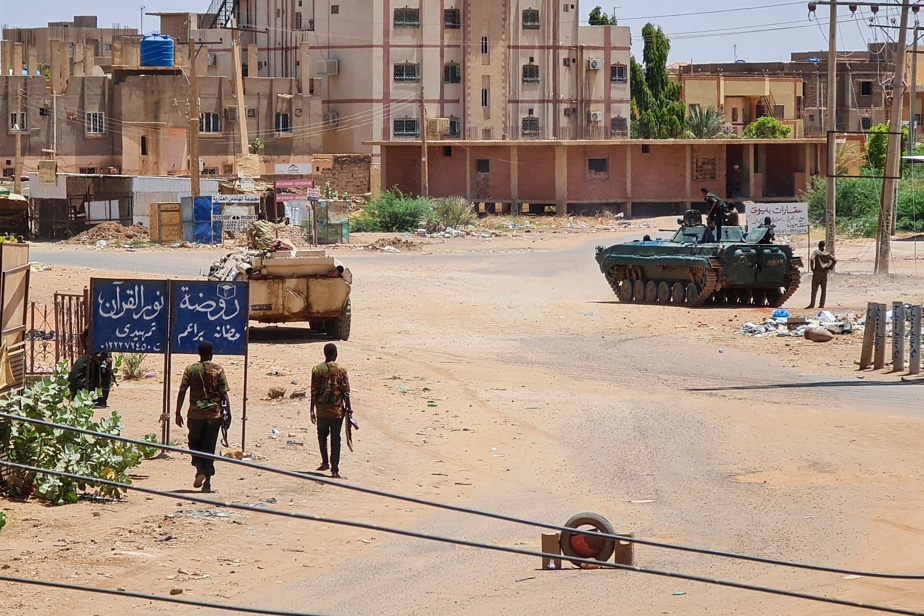(Khartoum) Fighting between the army and paramilitaries in Sudan has never stopped since the start of the conflict three weeks ago in defiance of multiple truce announcements, experts fearing a long-lasting war with belligerent forces equal and unwilling to give in.
“The battle for Khartoum is becoming a war of attrition,” said Andreas Krieg of King’s College London. Because General Abdel Fattah al-Burhane’s army and General Mohamed Hamdane Daglo’s Rapid Support Forces (RSF) “have the same capabilities” in combat, he explains.
Above all, underlines the Soufan Center research center, “with many foreigners evacuated or about to be, it is possible that the two generals are preparing for a merciless struggle for control of the country”. And they have the weapons and the men for it.
Both sent their troops to fight the rebels of Sudan, in particular during the war launched in 2003 in Darfur (west), and those of Yemen, alongside the coalition of Saudis and Emiratis.
In addition, they were able to diversify their sources of arms supply, after a long embargo.
Only one element could benefit the Sudanese army, the sixth largest in sub-Saharan Africa in terms of manpower, according to Military Balance Plus and the International Institute for Strategic Studies (IISS): its warplanes – when the FSR only operate in floor.
“But air power hasn’t given the military the knockout blow it hoped to inflict,” says Aly Verjee of the University of Gothenburg in Sweden.
For air strikes to be effective, “you need […] good intelligence on the ground or via satellite, a tool that the army does not have”, underlines this specialist.
And above all, adds Mr. Krieg, the army “cannot line Khartoum with bombs, because there are civilians”.
On the ground, the FSRs have an advantage: “In an urban environment, they are more flexible, their chains of command are more direct […] than those of the army”, assures Mr. Krieg.
Residents report seeing the FSR quickly set up checkpoints, small headquarters in houses and even snipers on rooftops. By contrast, there are few visible army positions in residential neighborhoods, they say.
Being able to move quickly with light vehicles is a big advantage in a city of more than 1,000 square kilometers – ten times Paris – divided into three zones by the confluence of the Blue Nile and the White Nile: to the south, Khartoum, to the north east, the suburb of Khartoum-Nord and to the northeast, the suburb of Omdurman.
“There is not a battle for Khartoum, but battles for Khartoum,” recalls Mr. Verjee.
This is why “the spiral of violence and the strategy of attrition could last a long time”, warns Mr. Krieg, even if the United States and Saudi Arabia announced discussions on Saturday in Jeddah between representatives of the two belligerents.
And both sides have the funds to hold on.
“Saudi Arabia and the United Arab Emirates are big sponsors on both sides. Egypt supports the army, the Saudis have a balanced approach and the Emirates are trying to maintain a balance, but have probably leaned in favor of Daglo, ”explains Mr. Krieg.
While the military has access to state funds and channels, Daglo, who with his FSRs controls much of the gold in the country, Africa’s third-largest producer, “is probably one of the richest men Sudan,” says the expert.
In addition, he has “the support of the Wagner Group”, these Russian mercenaries who signed contracts through nominees with the gold mines of Sudan, according to the US Treasury.
“Wagner was very important for the formation of the army as well as the FSR”, Mr. Krieg asserts, but “if Wagner has to make a choice, he will support Daglo, because he allowed him, thanks to the gold sent on the market via the United Arab Emirates, to become financially independent of the Russian state”.

